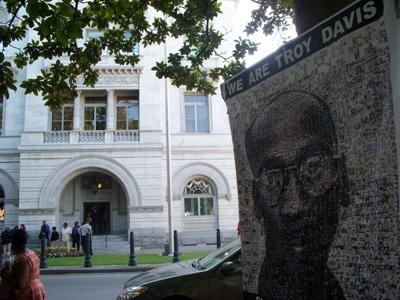
Section Branding
Header Content
Death Warrant Revives Execution Debate
Primary Content

A Chatham County judge signed a death warrant Tuesday for Troy Anthony Davis.
The document sets into motion a race toward Davis' execution and a fight over what it means.
This is Davis' fourth death warrant.
The warrant sets a window for Davis' execution between September 21st and 28th.
Davis was convicted of the 1989 fatal shooting of Savannah police officer Mark MacPhail.
Witnesses later recanted their testimony against Davis, calling his conviction into question.
Professor Michael Mears of Atlanta's John Marshal Law School says, Davis' scheduled execution highlights systemic flaws in the judicial system.
"Whenever there is an instance, such as here, when witnesses come forward and say, 'I swore falsely before,' I'm not sure that our court system is well-equipped to handle that type of situation," Mears says.
The US Supreme Court last year gave Davis a rare chance to prove his "clear innocence" before a Savannah federal judge.
The judge ruled Davis was not clearly innocent and called his defence case "smoke and mirrors."
Fordham Law School professor Deborah Denno follows death penalty policy nationwide.
She says, the high court's review makes the case more troubling.
"It's a statement that the court is not interjecting itself into the case, given all the problems with it," Dennos says. "This will go down as one of the cases drawing the most questions about our death penalty."
No physical evidence linked Davis to the killing.
And of the nine witnesses who implicated Davis, seven recanted their testimony and an eighth was himself identified as the killer at the hearing in 2010.
Members of the MacPhail family routinely have said they are waiting for justice to be served.
Tags: Troy Anthony Davis, U.S. Supreme Court, death penalty, US Supreme Court, Troy Davis, GPB News, Mark MacPhail, Troy Davis hearing, Michael Mears, John Marshall Law School, Fordham Law School
Bottom Content

